Search
Did you mean: Runes?
Search Results
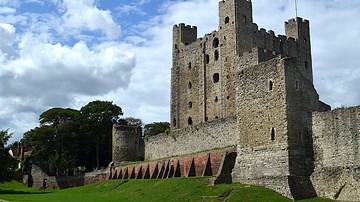
Definition
Rochester Castle
Rochester Castle, located in Kent, England, was first constructed shortly after 1066 CE by the Normans, was converted into stone between 1087 and 1089 CE, and then added to over subsequent centuries, notably between 1127 and 1136 CE, and...
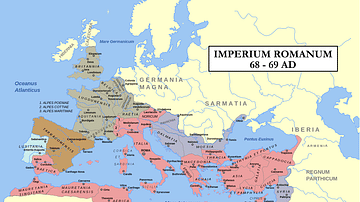
Article
The Batavian Revolt
Batavian revolt was a rebellion of the Batavians against the Romans in 69-70 CE. After initial successes by their commander Julius Civilis, the Batavians were ultimately defeated by the Roman general Quintus Petillius Cerialis. The year...
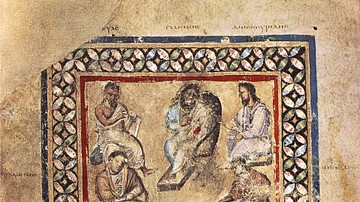
Image
Portrait of Seven Notable Greek Physicians & Botanists
An illustration of seven noted physicians and botanists from ancient Greece in the Vienna Dioscurides(aka the Juliana Anicia Codex), a 6th Century CE Byzantine manuscript of De Materia Medica by Dioscurides (c. 40 - 90 CE). The illustration...

Image
Isolde and Marke from the Motion Picture Tristan + Isolde
Marke (Rufus Sewell) and Isolde (Sophia Myles) as depicted in the 2006 motion picture Tristan + Isolde.

Video
The Roman Epic Poem The Aeneid: Introduction and Summary
The Aeneid was written by the Roman poet Virgil who lived between 70 and 19 BCE during the Augustan Period (named for Augustus, the first emperor of Rome). The twelve-book long epic poem tells the journey of the Trojan Aeneas and the mythological...

Definition
Aeneas
In Greco-Roman mythology, Aeneas is a Trojan prince and the legendary founder of the Romans. He is the son of Anchises, a member of the Trojan royal family, and the goddess Aphrodite/Venus. Aeneas was one of the few Trojan heroes who escaped...

Definition
William the Conqueror
William the Conqueror (c. 1027-1087), also known as William, Duke of Normandy, led the Norman Conquest of England in 1066 when he defeated and killed his rival Harold Godwinson at the Battle of Hastings. Crowned King William I of England...
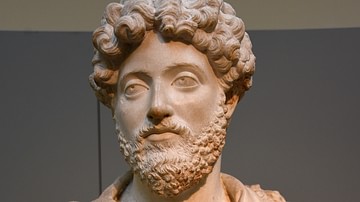
Definition
Roman Philosophy
Roman philosophy played a significant role in the growth and development of Western thought. While not involved directly in the development of original philosophical thought, Rome made significant contributions in two ways: by conveying Greek...

Definition
Boudicca
Boudicca (d. 61 CE) was the Celtic queen of the Iceni tribe of modern-day East Anglia, Britain, who led a revolt against Rome in 60/61 CE. The Iceni king, Prasutagus, an independent ally of Rome, divided his estate between his daughters and...
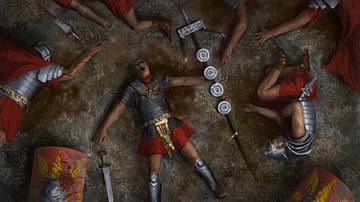
Definition
Battle of Cannae
The Battle of Cannae (2 August 216 BCE) was the decisive victory of the Carthaginian army over Roman forces at Cannae, southeast Italy, during the Second Punic War (218-202 BCE). The Carthaginian general Hannibal Barca (l. 247-183 BCE), who...